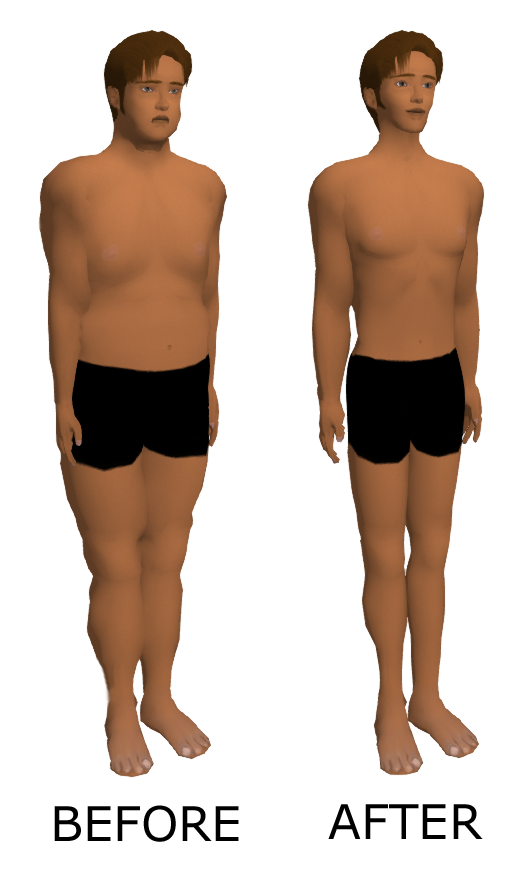Nike+ FuelBand
Cnet rating: 3.5 stars out of 5
The good: As a fitness tracker, the Nike+ FuelBand offers a simple, attractive design that stays out of the way during most physical activities. Its pedometer tracks steps taken, calories burned and a proprietary measurement of activity called NikeFuel. The accompanying iOS app and Nike+ website offer great motivational tricks too.
The bad: The NikeFuel score is worthless to anyone who doesn't have a Nike+ product and isn't always accurate. There's no way to measure distance for specific runs, so it isn't useful for athletes or people who train regularly. It's also pricey for what it does.
The cost: $149
The bottom line: Armed with a few tricks, the Nike+ FuelBand can be very effective as a motivator for casual exercise, but its limitations will leave serious athletes disappointed.
Fitbit Ultra
Cnet rating: 4 stars out of 5
The good: Small, light and easy to carry, the Fitbit Ultra effortlessly tracks your basic daily activity level. It has a host of online analytical tools, it tracks sleep quality, and it boasts both Android and iOS mobile apps.
The bad: The Ultra needs to be within 15 feet to sync with its USB-connected base station. The Trainer feature and a deeper activity data analysis cost extra. The Ultra isn't waterproof.
The cost: $100 to $133
The bottom line: The Ultra extends Fitbit's already impressive personal fitness data measurement abilities. Already a high-tech pedometer, the Ultra now has an altimeter to record stairs climbed, too. It isn't as advanced as more expensive mobile fitness gadgets, but the tiny device is easy to wear all day long and fun to use.
Motorola MotoActv
Cnet rating: 3.5 stars out of 5
The good: Extremely versatile and possessing the flexibility of Android, the MotoActv tracks workout stats through GPS and a pedometer, and it even suggests energizing playlists. It also has Bluetooth for linking to phones, headsets and other sensors.
The bad: This gadget costs as much as a modern smart phone. It's made for serious exercise and doesn't provide casual activity tracking or offer goals for daily activity levels. While the MotoActv's phone-linking function is nice, it only works with Motorola handsets.
The cost: $193 to $250
The bottom line: Motorola's incredibly capable fitness device can tackle just about any fitness task - such as tracking workouts via GPS and connecting to headsets via Bluetooth - and it serves as a very tiny digital music player. But if you're looking for a simple tool to measure daily activity and provide holistic advice on how to shed some pounds, this training tool isn't for you.
Apple iPod Nano 2011
Cnet rating: 3.5 stars out of 5
The good: The iPod Nano costs less than before, is easier to navigate, and includes more Nike+ fitness tracking capabilities. It's also still the best clip-on music player money can buy.
The bad: Many features have disappeared over the years, including video playback, camcorder, microphone, speaker, games, calendar, contacts, notes and alarm clock. The touch-screen interface is overkill, requiring more attention than the time-tested click wheel design without delivering many practical benefits.
The cost: $129 to $190
The bottom line: The sixth generation of the iPod Nano is the smallest yet, but it comes at the expense of valuable features and practical controls.
The following Cnet staff contributed to this story: senior writer Roger Cheng; senior editors Brian Bennett, Donald Bell and Laura K. Cucullu; former senior associate editor Jasmine France; and senior managing editor Kent German. For more reviews of personal technology products, visit www.cnet.com.
This article appeared on page D - 2 of the San Francisco Chronicle
This entry passed through the Full-Text RSS service — if this is your content and you're reading it on someone else's site, please read the FAQ at fivefilters.org/content-only/faq.php#publishers. Five Filters recommends: Donate to Wikileaks.
 27/09/2008 - 0 Comments
27/09/2008 - 0 Comments 03/10/2008 - 0 Comments
03/10/2008 - 0 Comments 22/03/2012 - 0 Comments
22/03/2012 - 0 Comments 09/04/2012 - 0 Comments
09/04/2012 - 0 Comments 15/04/2012 - 0 Comments
15/04/2012 - 0 Comments

0 意見:
Post a Comment